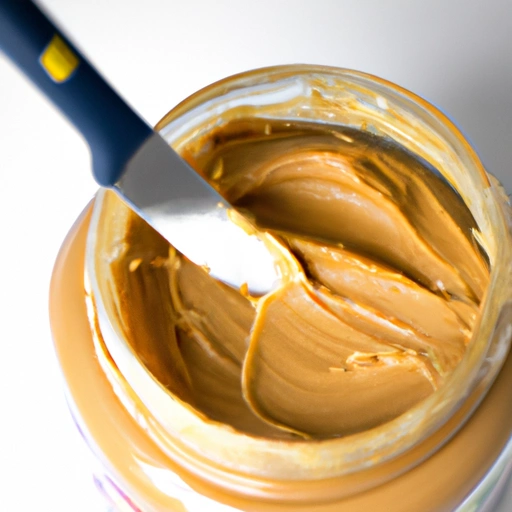Peanut Butter
Description

Peanut butter is a rich, creamy, and versatile spread made from ground dry roasted peanuts. It is commonly used in a variety of culinary applications, ranging from simple sandwiches to complex sauces and desserts. Peanut butter comes in several varieties, including smooth, crunchy, unsweetened, and flavored, catering to a wide range of tastes and dietary preferences.
Common uses
Peanut butter is widely used as a spread on bread, toast, and crackers. It serves as the base for the classic American peanut butter and jelly sandwich and is a key ingredient in many snacks and treats such as peanut butter cookies, brownies, and granola bars. It is also used in savory dishes like satay sauce and various African stews, showcasing its versatility.
Nutritional value
Calories
A typical serving of peanut butter, which is about 2 tablespoons (32 grams or roughly 1.1 ounces), contains approximately 188 calories.
Protein
Peanut butter provides about 8 grams of protein per serving, making it a good source of plant-based protein.
Fat
There are about 16 grams of fat in a serving of peanut butter, primarily consisting of monounsaturated and polyunsaturated fats.
Carbohydrates
Each serving of peanut butter contains approximately 6 grams of carbohydrates, with a portion of that being dietary fiber.
Vitamins
Peanut butter is a good source of vitamins E and B6, which are important antioxidants and help in the proper functioning of the immune system.
Minerals
It also contains essential minerals like magnesium, phosphorus, zinc, and potassium.
Health benefits
Peanut butter is a nutrient-dense food that offers various health benefits, such as aiding in muscle building and repair due to its protein content. The healthy fats found in peanut butter support heart health and can help maintain healthy cholesterol levels. The fiber content contributes to digestive health and helps maintain a feeling of fullness, which can aid in weight management.
Potential risks
While peanut butter is healthy in moderation, overconsumption can lead to excess calorie intake. It also contains aflatoxins, which are natural toxins produced by certain molds, though usually not at harmful levels. Additionally, peanut allergies are quite common and can be severe, so it's essential for those with allergies to avoid peanut butter.
Common recipes
Peanut butter is a staple in many recipes, from smoothies and shakes to savory peanut sauces and marinades. It features prominently in baked goods such as peanut butter cookies, cakes, and fudge.
Cooking methods
Peanut butter can be used straight from the jar or incorporated into various recipes through mixing, baking, and sautéing. It is also used as a thickening agent for sauces and soups.
Pairing with other ingredients
This spread pairs well with sweet flavors like chocolate, honey, and bananas, as well as with savory ingredients like chicken, tofu, and noodles. It also combines nicely with spices such as chili, curry, and ginger.
Summary
Peanut butter is a beloved food ingredient known for its rich taste and nutritional benefits. It is a versatile addition to both sweet and savory dishes and enjoyed in various forms worldwide. Whether used as a simple spread or a key ingredient in a gourmet meal, peanut butter adds a unique flavor and texture that is cherished by many.